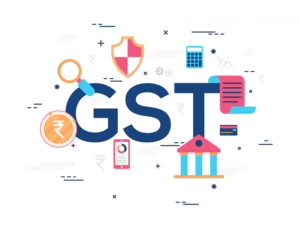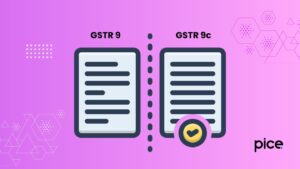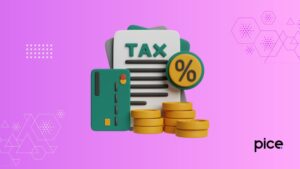Know about TCS Calculation on GST Invoice
- 28 Nov 24
- 12 mins
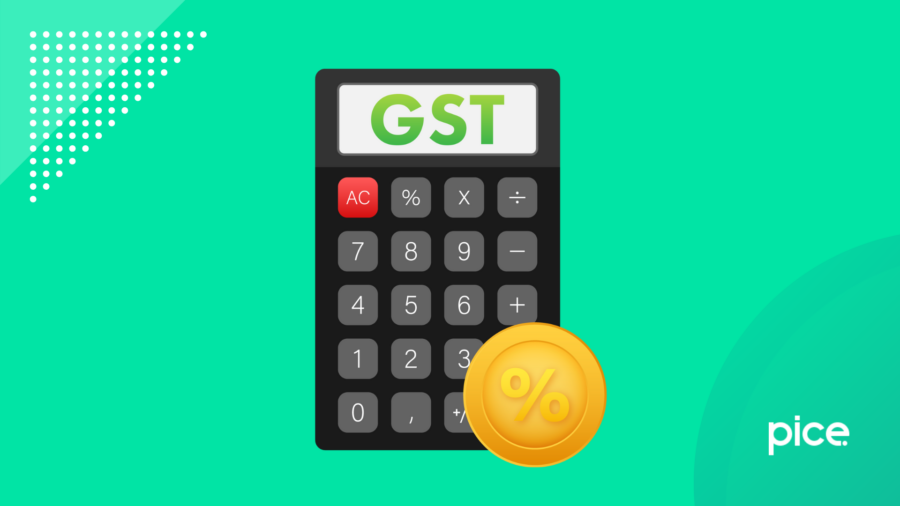
Know about TCS Calculation on GST Invoice
Key Takeaways
- TCS is collected by sellers on specified goods/services and deposited with tax authorities.
- Applies to specific transactions, exempting personal use and manufacturing purposes.
- Timely payment and error-free filing of TCS returns prevent penalties.
- Higher TCS rates apply for non-compliance or missing PAN/Aadhaar.
- E-commerce platforms deduct 1% TCS under GST for transactions.
During the sale of a product, the buyer has to pay a certain percentage of the product price. It is essential for sellers for accurate TCS calculation on GST invoices to avoid any penalties. Read on to learn about TCS in detail along with the rates and other information to accurately collect and deposit them with the tax authorities.
What Is Tax Collected at Source (TCS)?
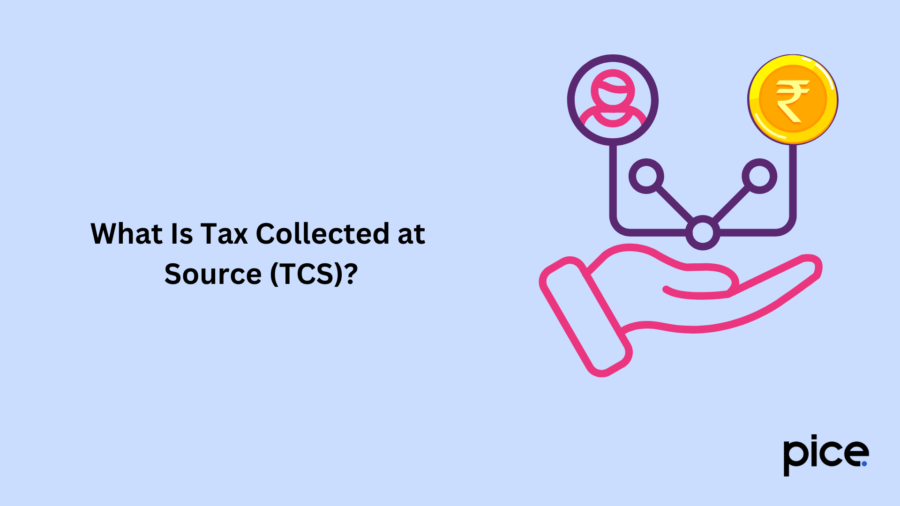
Tax collected at source refers to the amount that the seller collects from the buyer on sale of a particular product. The seller then deposits this amount with the tax authorities, as per Section 206C of the Income Tax Act.
There are several guidelines under Section 206C of the Income Tax Act that highlight the timing and the amount of tax the seller has to collect from the buyer when selling a product. However, when depositing the tax, it is mandatory for sellers to have a Tax Collection Account Number to legally collect the TCS.
Let’s understand the concept of tax collected at source with the help of an example. If chocolate costs ₹200, the buyer has to pay about ₹40 as TCS during their purchase. The seller then transfers this amount to a bank that the tax authority has permitted to collect the tax amount. Note that the seller can only pay this tax amount upon collecting it from the government and is not liable to pay it from their own account.
Who Can Collect TCS?
As per the laws under the Income Tax Act, there are only a few specific items on which TCS is applicable. On these goods or services, the buyer will have to pay a certain amount to the seller as TCS. The seller will collect the tax from the buyers as per the receipt of sale consideration upon the sale of these products and deposit them to the designated financial institution as tax.
When Should TCS be Collected?
The laws under Section 206C of the Income Tax Act state that there are two dates before which the seller has to mandatorily collect the tax on the product from the buyer. These dates include:
- When the seller debits the money that the buyer pays as tax to their account in the final book of accounts as per the nature of sale done
- On times when the seller receives money from the buyer in the form of cheques or drafts during B2B transactions or B2C transactions
Note that during a motor vehicle sale, the seller collects the TCS from the buyer after the sale of the motor vehicle.
TCS Rates for Specific Goods
The laws under the Income Tax Act state that the buyer is liable to pay TCS when, upon utilising the goods for trading purposes and not for processing, manufacturing or trading. The seller collects taxes from the buyer at the time of sale at the following rates of taxes:
| Type of Goods or Transactions | Rate of Tax |
| Liquor of alcoholic nature, made for consumption by humans | 1% |
| Tendu leaves | 5% |
| Timber wood under a forest leased | 2.5% |
| Timber wood by any other than forest-leased | 2.5% |
| Scrap | 1% |
| Forest produce other than Tendu leaves and timber | 2.5% |
| Purchase of Motor vehicle exceeding Rs.10 lakh | 1% |
| Parking lot, Toll Plaza and Mining and Quarrying | 2% |
| Minerals like lignite, coal and iron ore | 1% |
| Where total turnover is more than ₹10 crore in the previous financial year and receives sale consideration of any products of more than ₹50 lakh, such seller must collect TCS upon receiving consideration from the buyer on such amount over and above ₹50 lakh, as per Section 206C(IH).(Without PAN, then 1% is TCS) | 0.1% |
When Will the Higher TCS Rate Apply?
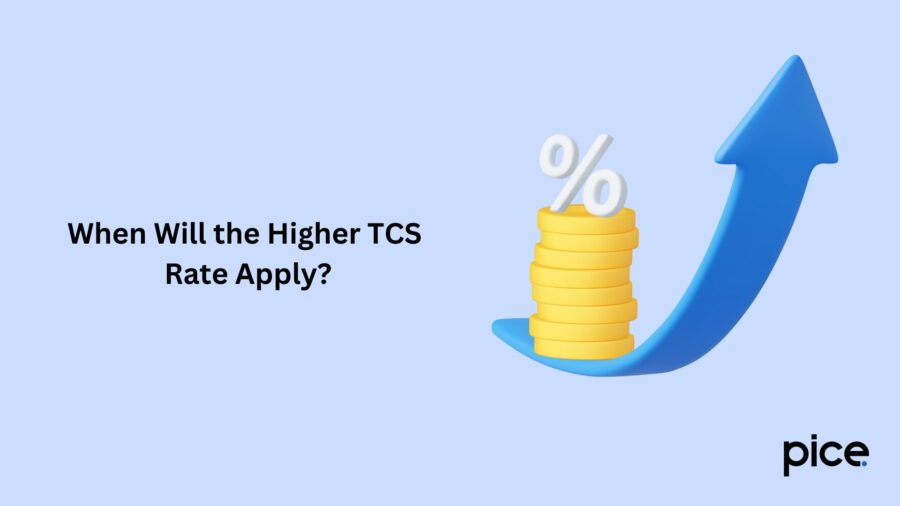
As per Section 206C of the Income Tax Act, buyers will have to pay a higher rate of tax on the purchase of goods under the following circumstances:
- If a person has not filed an ITR for the last two years before the current financial year for which the TCS is being collected
- In case the time limit specified for filing of TCS has passed
- The total of TDS and TCS that the taxpayer pays has exceeded ₹50,000 in each of the two previous financial years
The highest rate of tax will be chosen among the two rates such as 5% TCS or two times the TCS rates applicable for various products. Furthermore, in some special cases under this Section of the Income Tax Act, where 5% of the TCS applies when an authorised dealer in India opts for remittance out of India. However, the buyer must be of foreign origin, and the overall amount has to be ₹7 lakh or more in a single financial year.
Additionally, the rates can increase to 10%, if the seller is unable to submit a valid PAN or Aadhaar card. The seller collects this amount from the buyer upon debiting the cost of goods or services from their accounts and deposits this money to the tax authorities via the authorised financial institution.
Classification of Seller for TCS
The laws under Section 206C identify the following entities as sellers and assign them the responsibility for TCS:
- Any person or HUF who is subjected to an audit of accounts under the Income Tax Act for a particular financial year
- State Government
- Central Government
- Local Authority
- Statutory Corporation or Authority
- Partnership firms
- Company registered under the Companies Act
- Co-operative Society
Apart from these entities, no other person or organisation has the authority to collect taxes from buyers upon their sale of goods.
Classification of Buyers for TCS
Similar to sellers, the laws under Section 206C of the Income Tax Act have also designated some entities as buyers. Usually, they are the purchasers of a good or service in the form of tender, auction or any other mode of payment or invoice.
The entities that are not included under ‘buyers’ are as follows:
- State Government
- Clubs such as sports clubs and social clubs
- Embassy of High Commission
- Public sector companies
- Central Government
- Consulate and other Trade Representation of a Foreign Nation
- Where resident buyer utilises such purchase for manufacturing, processing or producing articles or things or for the purposes of generation of power (not for trading) and gives this declaration in writing in duplicate
Example of TCS Calculation
If a buyer purchases a vehicle for ₹10 lakhs, then, they will have to pay a tax of ₹10,000 on their purchase. In such scenarios, they will need to pay a total amount of ₹1,10,000 (1,00,000+10,000) during the sale of motor vehicles.
Say, suppose, the buyer was issued an additional bill of ₹15,000. For this amount, 1% TCS is collected, which amounts to ₹150. Here, the total amount that the buyer will have to pay is ₹15,150 (15,000+150).
TCS Payments & Returns
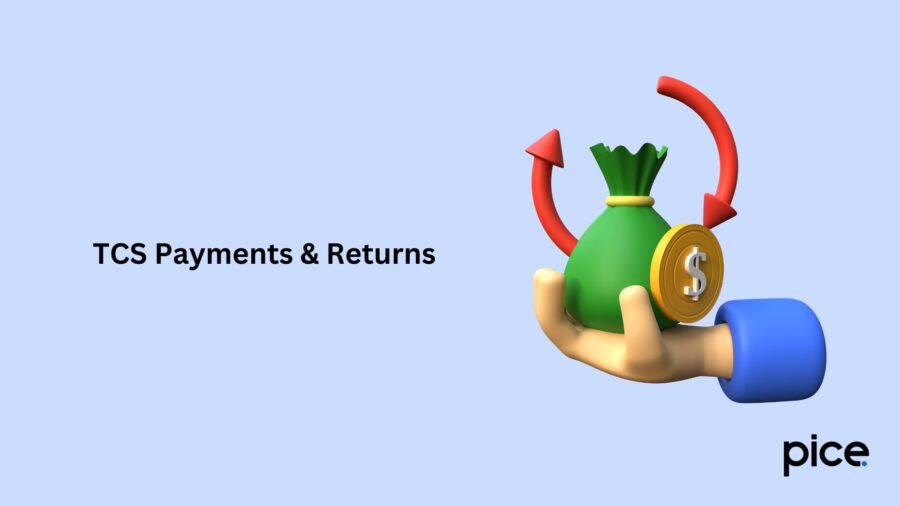
Section 206C under the Income Tax Act underlines several laws regarding TCS payments and sales returns. These rules and regulations include:
- The government office collecting taxes from the taxpayers has to mandatorily deposit the money on the same day of collection.
- The seller needs to fill out the Challan 281 to deposit the TCS amount within 7 days from the last day of the month for which the tax is being collected.
- In case the tax collector is unable to collect the tax deposit it with the government on the same of tax collection or before the deadline, resulting in a delay in payment, they will be liable to pay a penalty of 1% per month or a part of the month.
- All the tax collectors must quarterly file the TCS returns for every quarter by filling out the 27EQ form.
- If the tax collectors miss out on filing the returns for a particular quarter, they must pay the penalty for the delay before proceeding with the Income Tax Returns filing.
TCS Certificate
As per the laws under the Income Tax Act, during the filing of TCS returns, a tax collector has to submit Form 27EQ to the government and issue a certificate to the buyer in the form of Form 27D. Some of the crucial details present in this certificate include
- Date of collection
- Name of the Seller and Buyer
- PAN of both Seller and Buyer
- Total tax collected by the seller
- TAN of the seller i.e. who is filing the TCS return quarterly
- The rate of Tax applied
It is mandatory that the tax collector issue the certificate to the buyer within 15 days of filing quarterly returns.
| Quarter Ending | Date for generating Form 27D | Due date to file TCS return in Form 27EQ |
| For the quarter ending on 30th June | 30th July | 15th July |
| For the quarter ending on 30th September | 30th October | 15th October |
| For the quarter ending on 31st December | 30th January | 15th January |
| For the quarter ending on 31st March | 30th May | 15th May |
TCS Exemptions
There are several scenarios outlined under the Income Tax Act when the TCS is exempted. These include:
- In cases where the goods eligible for TCS are used for personal consumption
- If the buyer purchases a product for processing, manufacturing and production of other goods and not for the purpose of trading
TCS Provision under GST for E-commerce Sales
Some of the essential TCS provisions under GST for eCommerce sales include:
- A trader or dealer responsible for the sale of goods on various e-commerce platforms is eligible to get a payment from that platform after the deduction of 1% of the amount as tax under IGST from the e-commerce operators.
- It is compulsory for all traders and dealers to register themselves under GST.
- The tax collectors should mandatorily deposit the tax amount to the government within the 10th of the next month.
For example, consider Mr. XYZ to be a seller who sells clothes on e-commerce platforms like Flipkart. If he receives a commission of ₹20,000, Flipkart will automatically deduct 1% of ₹20,000, that is, ₹200.
TCS Provision in Foreign Remittance Transactions
Certain crucial TCS provisions in foreign remittance transactions include:
Submission of Form 24G
If a tax collector deposits the tax without the generation of challan, the following rules will be applicable under such conditions.
- Rules where TDS is Deposited without Challan
- The Principal Director of income tax authorises the generation of Form 24G if the tax collector has deposited the money without a challan.
- They are usually issued within the 15th of the subsequent month and for March, they must be issued within April 30.
- The form is electronically verified under the digital signatures, or using different electronic processes.
- Rules where TCS Under Section 206C is Deposited without Challan
- If a person deposits tax without a challan, the tax collection authority, that is, the government, has to submit Form 24G to the agency that the Principal Director of income tax authorises.
- Form 24G must be submitted within 15 days of the subsequent month.
- For Form 24G of March, people can submit it within 30 April.
- It must be issued electronically, under digital signature, along with the verification Form 27A or verified through electronic processes.
Interest Chargeable on Non-remittances of TCS to Government
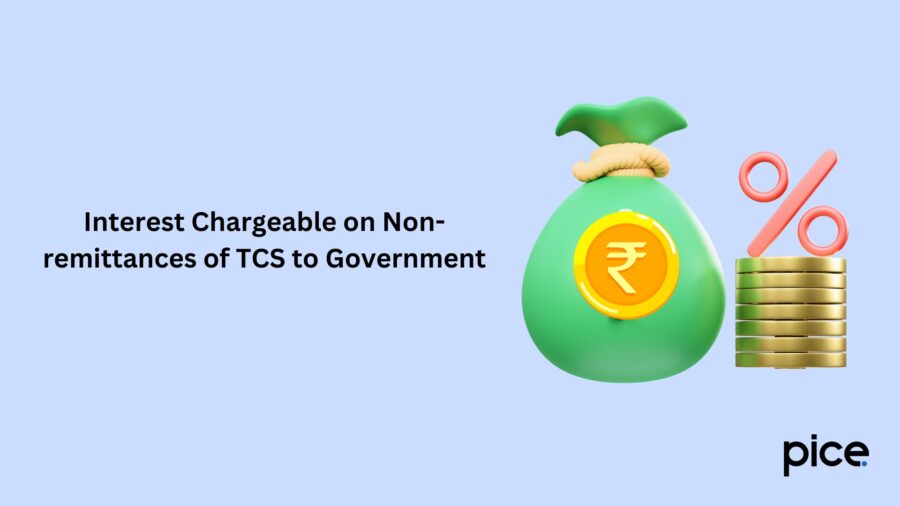
If a tax collector is unable to pay the tax to the government within the due date resulting in a delay in payment of TCS, they will have to pay a 1% charge as a penalty.
Penalty for Incorrect Filing of the TCS Return
As per Section 271H of the Income Tax Act, a tax collector will have to pay a maximum penalty of ₹1,00,000 and a minimum penalty of ₹10,000 if they submit erroneous TCS returns.
Differences between TCS and TDS
The following table highlights the differences between TCS and TDS as follows:
| Parameters | TCS | TDS |
| Definition | Stands for Tax Collected at Source and involves the collection of tax from a buyer by a seller during the sale. | Stands for Tax Deducted at Source and involves the amount that the company deducts from employees |
| Application | Applicable on items such as scrap, tendu leaves, wood, minerals, etc. | Applicable on salary components like wages, interest, leases, dividends, professional fees, brokerage, commission, etc. |
| Deduction Time | Collected at a fixed rate during the sale of goods or services | Deducted when the salary reaches a certain threshold |
Conclusion
Once you are aware of the tax rate at which TCS applies to a certain product, the TCS calculation on the GST invoice becomes simplified. When filing the GST returns, ensure that there are no errors. Otherwise, the government will levy an additional penalty on the transactions.
💡If you want to streamline your payment and make GST payments, consider using the PICE App. Explore the PICE App today and take your business to new heights
 By
By 










